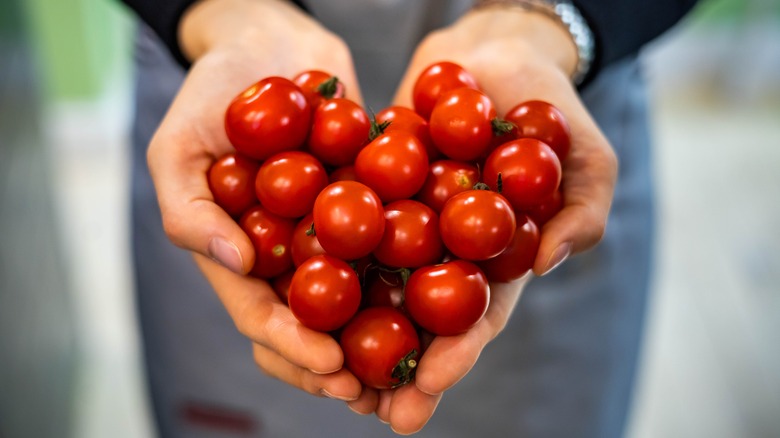Do Tomatoes Have Cancer Fighting Properties?
Tomatoes get a lot of praise for their potential health benefits. Rich in antioxidants, these juicy fruits can protect against free radical damage, chronic diseases, and inflammation, according to recent evidence presented in the journal Biology. A single tomato provides nearly 7% of the recommended potassium intake, 3% of the recommended daily allowance of iron, as well as copper, zinc, phosphorus, and other minerals. It's also a source of vitamin C, flavonoids, and carotenoids, including lycopene, a compound with anti-cancer, anti-diabetic, and cardioprotective activity.
Experts suggest that fruits containing antioxidants have been shown to prevent liver disorders, diabetes, heart disease, constipation, and other ailments, notes a research paper published in the journal Foods. For example, lutein and zeaxanthin — two carotenoids in tomatoes — may protect against age-related macular degeneration. The former may also slow cataract progression and increase insulin sensitivity. Caffeic acid, another key nutrient, fights oxidative stress and may help reduce high blood pressure.
Some studies also suggest that tomatoes boast anti-cancer properties, according to the above reviews. This potential benefit is most likely due to their high antioxidant content, though more research is needed to confirm it.
The truth about tomatoes and cancer risk
Quercetin, lycopene, and other antioxidants in tomatoes may help prevent cancer or slow its progression, according to clinical research published in the journal Foods. These nutrients can stop cancer cells from spreading and alter their signaling pathways while reducing DNA damage. For example, lycopene suppresses free radical production and may lower the risk of colorectal cancer, and other types of cancer, explain the researchers.
Xiang-Dong Wang, a scientist at Tufts University, says that tomato powder and other similar products rich in lycopene may protect against liver cancer. However, lycopene supplements appear to be less effective than whole tomatoes, which also contain vitamin C, vitamin E, and other nutrients. Dr. Wang also suggests that tomato products may lower the risk of lung and breast cancer, but further studies are needed in this area.
It's important to note that cancer is a complex disease, and no single food can prevent or cure it. "Research tells us that making healthy food choices consistently over time can reduce your risk of getting cancer, but you can't say with absolute certainty that food can prevent cancer. There are no guarantees," notes dietitian Lindsey Wohlford (via MD Anderson Cancer Center).


